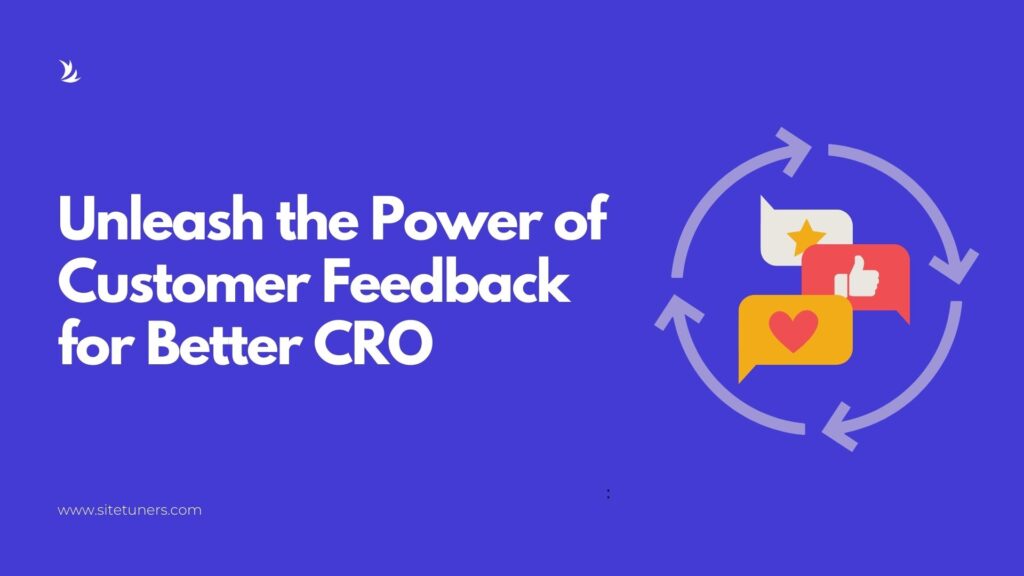Summary: In digital marketing, conversion rate optimization (CRO) is crucial for businesses to maximize online success. One powerful tool that can significantly impact CRO is social proof. Social proof refers to the influence and impact of others’ opinions and actions on an individual’s decision-making process. It is vital in improving business conversion rates by building trust, credibility, and validation among potential customers. In this article, we will explore the role of social proof in CRO and how it can be effectively utilized to enhance conversion rates.
Social proof is a psychological phenomenon when people look at others’ behavior to determine what is correct or appropriate in a particular situation. This behavior stems from the basic human need for social acceptance and validation. When individuals see others engaging in specific actions or endorsing a product or service, they are more likely to follow suit. They perceive those actions or endorsements based on reliable information and reflect the majority opinion.
The Impact of Social Proof on Consumer Behavior
Reviews, testimonials, and case studies are forms of social proof that significantly impact consumer behavior. These provide third-party opinions and experiences, helping potential customers make informed decisions. Positive reviews and testimonials can create a sense of trust and credibility, increasing the likelihood of conversions. For example, consider a potential customer looking to purchase a new smartphone. If they come across a product with numerous positive reviews and testimonials from satisfied customers, they are more likely to trust the product and make a purchase.
Social media popularity, such as the number of fans and followers, serves as social proof, indicating the credibility and trustworthiness of a brand. When potential customers see that a brand has a large following on social media platforms, it signals that it is popular and trusted by many. This can influence their perception of the brand and increase their likelihood of converting. For instance, a fashion brand with a significant number of followers on Instagram is more likely to attract potential customers who perceive the brand as trendy and reliable.
Moreover, positive mentions from trusted sources, such as media outlets, can add credibility and increase conversions as they validate the quality and value of a product or service. Imagine a food blog that features a restaurant in a positive light. The blog’s readers are more likely to trust the restaurant and consider dining there based on the positive mention from a trusted source. This validation from a reputable media outlet can significantly impact consumer behavior and drive conversions.
Displaying awards and recognition on a website also validates a brand, generating trust and perceived value. When potential customers see that a brand has received awards or recognition for its products or services, it signals that it meets specific standards of quality and excellence. This validation can instill confidence in potential customers and increase their likelihood of converting. For example, a hotel website that prominently displays its five-star rating and awards for exceptional service is more likely to attract potential customers looking for a luxurious and reputable accommodation option.

Leveraging Social Proof in Marketing Campaigns
To effectively leverage social proof in marketing campaigns, businesses can incorporate customer testimonials, user-generated content, social media mentions, influencer endorsements, and reviews and ratings. Customer testimonials provide real-life experiences that resonate with potential customers and increase trust in the brand. For instance, an e-commerce website can feature customer testimonials on product pages, showcasing how previous customers have benefited from using the products. These testimonials are social proof and can significantly influence potential customers’ decision-making.
User-generated content, such as customer reviews and ratings, helps potential customers make informed decisions and serves as social proof for others. When potential customers see positive reviews and high ratings for a product or service, they are more likely to trust the brand and consider purchasing. For example, a restaurant review website that displays positive reviews and ratings can influence potential customers to choose that restaurant over others.
Social media mentions and endorsements from influencers can boost a brand’s credibility and trustworthiness by showcasing the approval of trusted individuals or famous figures. When influential people or celebrities endorse a product or service, followers are more likely to perceive the brand as reliable and trustworthy. For instance, a beauty brand that collaborates with a famous beauty influencer can benefit from the influencer’s endorsement, a powerful form of social proof that can lead to more conversions.
In today’s competitive marketplace, social proof can be a game-changer for businesses looking to boost their sales. Businesses can strategically leverage customer experiences and opinions to validate their brand, amplify their message, and drive more conversions. Take, for instance, a clothing brand that showcases real customers wearing their products and sharing their positive experiences. This helps establish the brand’s credibility, influences potential customers, and encourages them to purchase. Don’t miss out on the power of social proof to help your business succeed!

Rules for Each Stage of the AIDA Model to Improve Your Website
Best Practices for Collecting and Displaying Reviews and Testimonials
Focusing on relevance and authenticity is essential when collecting and displaying reviews and testimonials. Selecting social proof relevant to the target audience and authentic is crucial for building trust and credibility. For example, a health and fitness website should collect testimonials from individuals who have achieved tangible results through their fitness programs. These testimonials should be authentic and verifiable, as potential customers are more likely to trust testimonials with accurate results from real people.
Social proof displayed prominently on websites, product pages, and checkout pages can help instill confidence in potential customers and motivate them to act. For instance, an e-commerce website can feature customer reviews and ratings prominently on product pages, making it easy for potential customers to access and evaluate the social proof. This provides valuable information to potential customers and reassures them that they are making an informed decision. Overall, displaying social proof can be an effective way to build trust and increase conversions.

It’s crucial to show off what your customers are saying at every step of their journey with you. If you do this right, you’ll get their validation and influence. Take, for instance, a travel site that wants to create trust and interest immediately. They can put customer testimonials and reviews right on the homepage. As the customers check out different destinations and hotels, the site can keep showing them extraordinary social proof that makes them feel good about their choices and keeps them moving toward that final booking.
Case Studies: Impact of Social Proof on Conversion Rates
Numerous case studies demonstrate the tangible impact of social proof on conversion rates. Brands like Amazon, Dropbox, and Airbnb have successfully utilized social proof to increase conversions. For example, Amazon employs customer reviews and ratings to provide social proof for their products, significantly influencing potential customers’ purchasing decisions. Customers are more likely to trust and choose products with positive reviews and high ratings, leading to increased conversion rates for Amazon.
Another case study example is Airbnb, a popular online marketplace for accommodations. Airbnb displays social proof through guest reviews and ratings for each listing. Potential guests can read about previous guests’ experiences and assess the accommodations’ quality and reliability. This social proof is crucial in increasing host conversion rates, as potential guests are more likely to choose listings with positive reviews and high ratings.
Discover how social proof can skyrocket your sales, boost your conversion rates, and earn the trust of your customers. These compelling case studies showcase the power of social proof when used strategically. With the right approach, you can tap into consumer behavior and see tangible results for your business. Don’t miss out on the opportunity to take your business to the next level with social proof.

Unleashing the Power of Customer Feedback: Your Path to Conversion Rate Optimization
Strategies for Optimizing Social Proof in CRO
To optimize social proof in CRO, businesses can utilize strategies such as AB testing, website optimization, and leveraging tools. AB testing allows businesses to determine the most impactful social proof elements and identify the optimal timing for displaying social proof, resulting in optimized conversion rate optimization efforts. For example, an e-commerce website can test different variations of product pages with varying placements and formats of customer reviews. The website can identify the most effective social proof elements for driving conversions by analyzing the data and measuring the impact on conversion rates.
Website optimization ensures that social proof is implemented strategically to avoid potential negative effects and aligns with the overall user experience and brand identity. For instance, a website should avoid overwhelming potential customers with excessive social proof or using irrelevant social proof that distracts from the main message. It is essential to balance providing enough social proof to build trust and credibility while maintaining a clean and user-friendly website.
Tools like OptiMonk can be used to create triggered messages and optimize the display and effectiveness of social proof elements. For example, an online store can use OptiMonk to display personalized pop-ups that showcase positive customer reviews and ratings based on the user’s browsing behavior. This personalized social proof can significantly impact the user’s decision-making process and increase the likelihood of conversion.
Conclusion
In conclusion, social proof is vital in improving business conversion rates by building trust, credibility, and validation among potential customers. By effectively leveraging social proof through reviews, testimonials, and other forms of validation, businesses can enhance their credibility, increase conversions, and drive success in their marketing efforts. Incorporating social proof into marketing campaigns and implementing best practices for collecting and displaying reviews and testimonials can significantly impact CRO. By optimizing social proof strategies and utilizing tools, businesses can harness the power of social proof to maximize their persuasive impact and achieve their conversion rate optimization goals.

